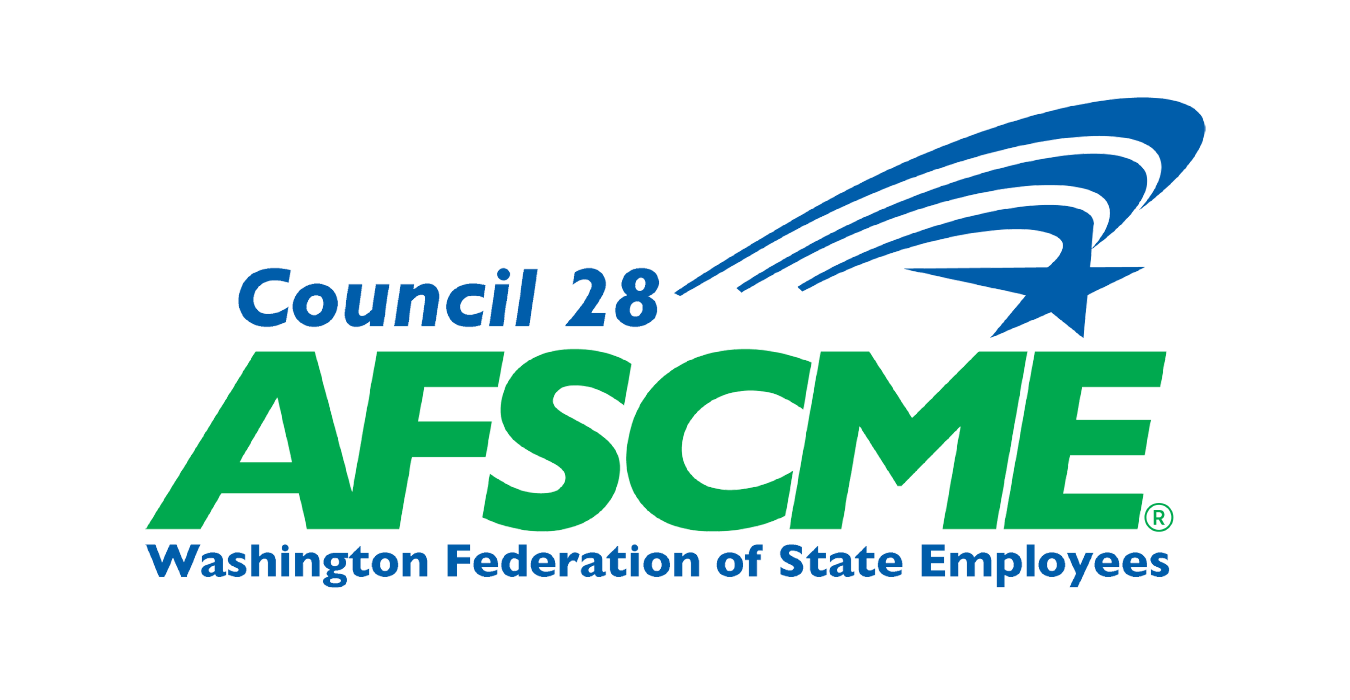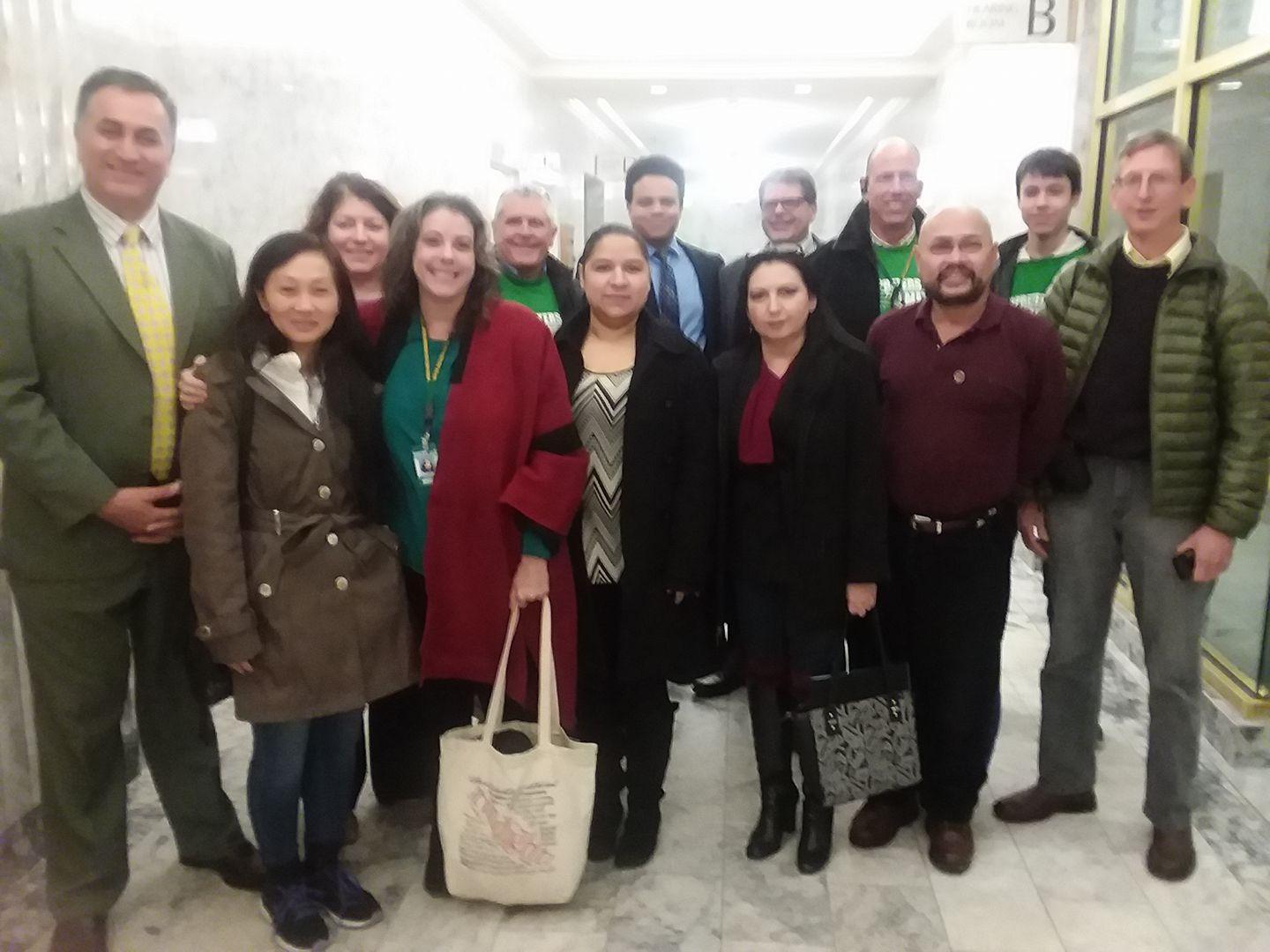More on Friday's PSERS passage in the state Senate
After years of effort, workers in DSHS and Veterans institutions with unacceptable rates of assault and injury will now be able to join the PSERS retirement system if the governor signs SHB 1558 into law.
The state Senate Friday (March 2) on a vote of 34-14 passed the bill to allow those high-risk workers into the Public Safety Employees Retirement System (PSERS). PSERS comes with an earlier retirement age of 60.
Sen. Steve Conway of the 29th Dist. led the charge on the Senate floor, arguing that workers facing years of assaults and injury shouldn't have to work until they're 65. This good humanitarian bill is now headed to the governor for his signature into law.
AFSCME Council 28 (WFSE) Lobbyist Matt Zuvich thanked the prime sponsor of the PSERS bill, Rep. Christine Kilduff of the 28th Dist.
Zuvich said passage caps eight years of work to right an old wrong when those workers facing high rates of assault and injury were left out when PSERS was created.
Here are more details taken from the official bill summary:
- Provides membership in the Public Safety Employees' Retirement System (PSERS) for employees of the Department of Veterans Affairs (Veterans Affairs) and the Department of Social and Health Services (DSHS) whose primary responsibility is to provide nursing care to, or to ensure the custody or safety of, offender and patient populations in state institutions including the mental health hospitals and the Child Study and Treatment Center.
- Provides membership in the PSERS to state, city, and county corrections personnel who are employed by a PSERS employer and whose primary responsibility is to provide nursing care to, or ensure the custody and safety of, offender and patient populations.
- Adds the Veterans Affairs and the DSHS as eligible PSERS employers.
- Permits members of the Public Employees' Retirement System (PERS) Plan 2 or Plan 3 made newly eligible for the PSERS to choose between remaining in the PERS or transferring to the PSERS for periods of future service.
Other highlights as we enter the final four days of the 2018 legislative session
Including the PSERS bill, AFSCME Council 28 (WFSE) members saw five major priority bills pass in a short session when there's less time to get legislation passed.
It goes without saying this success would not have happened without the phone calls, emails, Lobby Day visits and personal testimony from AFSCME Council 28 (WFSE) members. Once again, tens of thousands of union members stepped up, told their stories to legislators and made a difference.
- One of those five bills, 2SSB 6245, the interpreter services expansion bill, is currently on the Senate's concurrence calendar because of House amendments. It already passed the Senate 31-16-2 and House 53-44-1.
The four others are already headed for the governor's desk for his signature into law:
- As we said, the bill to expand PSERS (SHB 1558) passed the Senate March 2 on a vote of 34-14-1. It earlier passed the House 89-9.
- Adding part-time employees to civil service (HB 2669). Passed the House 50-47-1 and Senate 27-21-1.
- Expanding shared leave for pregnancy disability/bonding with newborns (ESHB 1434)passed the House 73-21-4 and Senate 49-0.
- Peer support group confidentiality for DOC Community Corrections (HB 2611) passed the House 98-0 and Senate 49-0.
Three priority bills did not clear the final cut-off deadline March 2 for most House bills to pass the Senate and most Senate bills to pass the House:
- E2SHB 1851 - The Taxpayer Protection Act to bring transparency and accountability to state outsourcing did not come up for a Senate vote. It had earlier passed the House 52-45-1.
- SHB 1559 - Binding interest arbitration for campus police did not come up for a Senate vote. It had earlier passed the House 82-13-3.
- SHB 2778 -- Protecting the privacy of state employees who blow the whistle on sexual harassment did not come up for a Senate vote. It had earlier passed the House 98-0.
Also this week, the compromise supplemental budget is due out by Wednesday. The session adjourns Thursday, March 8.

